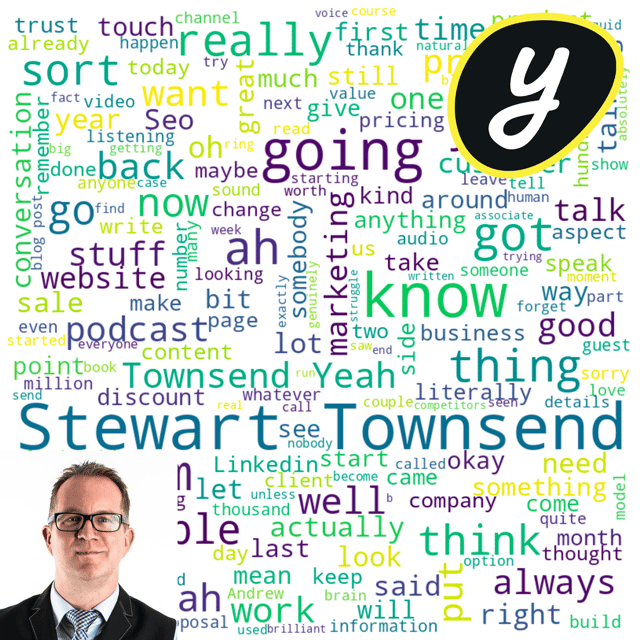

This is the second time Stewart Townsend has been a welcome guest on the Yeseo untitled SEO podcast. In our first conversation, we touched on the death of email and lightly grazed some other fascinating topics we wanted to dig deeper into.
Most of our conversation revolved around sales and marketing. We shared experiences and ideas for improving customer engagement. We also dug into transparency and why some companies refuse to put prices on their websites.
Stewart Townsend has a long history of working in tech, in the corporate world and in startups. This episode is fascinating, friendly and insightful. If you are interested in the evolving sales and marketing landscape, this podcast episode is for you.

This is the second time Stewart Townsend has been a welcome guest on the Yeseo untitled SEO podcast. In our first conversation, we touched on the death of email and lightly grazed some other fascinating topics we wanted to dig deeper into.
Most of our conversation revolved around sales and marketing. We shared experiences and ideas for improving customer engagement. We also dug into transparency and why some companies refuse to put prices on their websites.
Stewart Townsend has a long history of working in tech, in the corporate world and in startups. This episode is fascinating, friendly and insightful. If you are interested in the evolving sales and marketing landscape, this podcast episode is for you.




